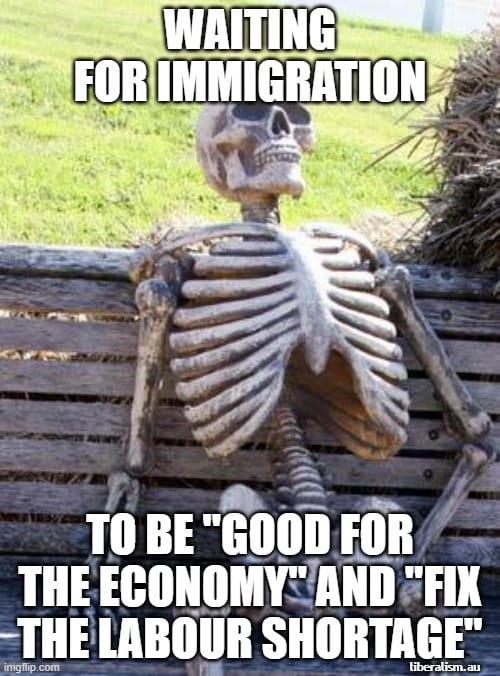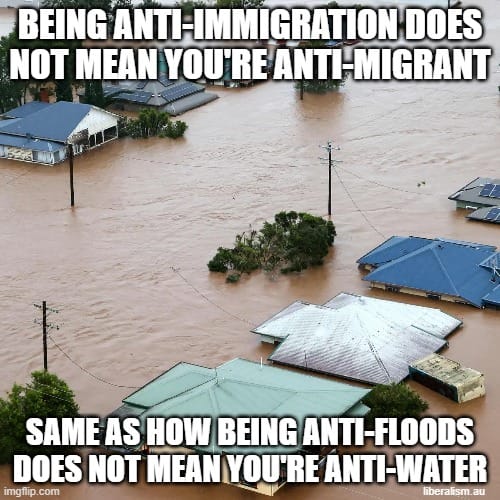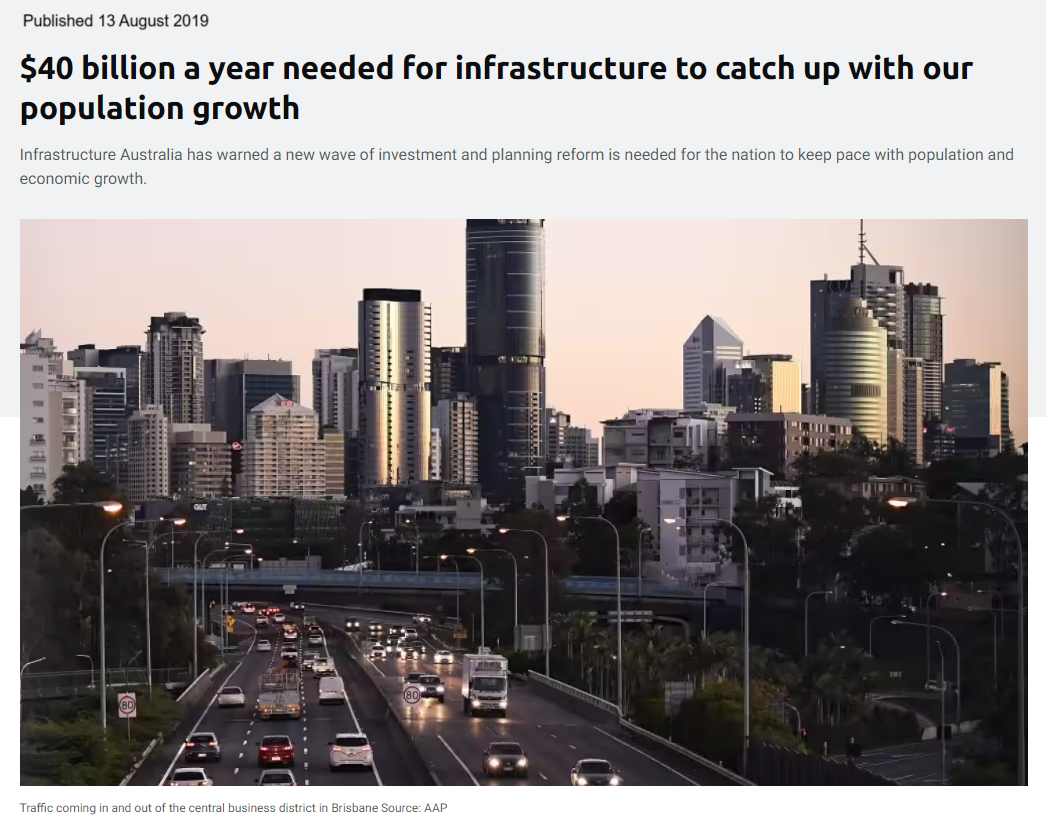Every Reason For Immigration Debunked

The real reason for mass immigration is simple: it boosts corporate profits. More people means more consumers for Australian companies, expanding their market and increasing revenue. At the same time, an oversupply of cheap foreign labour drives down wages, cutting business costs. Higher revenues and lower expenses equal bigger profits—and bigger bonuses for CEOs. That’s why the Business Council of Australia and other industry lobby groups relentlessly push for high immigration.
Every supposed justification for mass immigration is a lie. I asked ChatGPT to list all the common arguments—and debunked every single one of them.

Economic growth: Boosting GDP
Yes, immigration increases GDP. No, that's not necessarily a good thing. If you think a bigger GDP is better, you should consider moving to India. Their GDP is double ours. Increasing GDP by increasing the population obviously doesn't increase GDP per capita. In fact, we've recently experienced the longest per capita recession on record, meaning most Australians are worse off. What immigration DOES do is increase GDP per corporation.

And if immigration is good for the economy, when exactly do the good times start? After 20+ years of mass immigration, we've never been worse off.
Economic growth: Filling labour shortages
A labour shortage is a good thing. Seriously. If demand for labour was greater than supply, what should happen is the price of labour (wages) would increase until supply and demand reached equilibrium. In other words - a labour shortage makes your wages go up and immigration makes your wages go down.
We're made to think that there's a specific number of job vacancies that need to be filled. This is a lie. The most fundamental concept in economics is scarcity. Unlimited wants and limited resources. There is an unlimited number of job vacancies and a limited number of workers. Labour goes to whoever is willing to pay the most for it. I would like to hire someone to mow my lawns for $5/hr. The fact that I can't fill that position does not mean there's a labour shortage.
Not only that, the companies that can afford to pay the most are generally the most productive companies. As the supply of labour increases, less productive companies can afford more labour - lowering overall productivity.
When somebody says there's a labour shortage, what they really mean is they want your wages to decrease to a point where they can afford to hire you.
Besides, if 20+ years of mass immigration and an extra 8 million people hasn't fixed the labour shortage by now, how much longer do they think they can keep using that excuse?

Aging population: Increasing the ratio of workers to retirees.
Using immigration to offset an aging population is, at best, just kicking the can down the road—migrants get old too.
And even that excuse doesn’t hold up. The median age of Australians is 38, while the median age of permanent migrants entering the country is 37. In other words, it makes virtually no difference at all.

In reality, immigration isn't the solution to the problem. Immigration IS the problem. When the Productivity Commission warns about an aging population, it’s not the baby boomers they’re most concerned about—it’s the much larger population bubble created by mass immigration.
There’s already a well-known and sensible way to increase the ratio of workers to retirees: encourage greater workforce participation among people over 65. Australians are living longer, healthier lives, and many are choosing to work longer anyway. It’s happening naturally. The so-called “aging population crisis” isn’t a crisis at all.

Skills shortages: Attracting workers in specific industries (e.g., healthcare, construction, IT).
Immigration doesn’t expand our skills base—it replaces it. For corporations, it’s far cheaper to import a ready-made worker than to train an Australian. And when wages are driven down by an oversupply of skilled migrants, locals lose both the incentive and the opportunity to upskill.
If there were genuinely a skills shortage in any field, wages for people with those skills would rise—naturally attracting more people to train in that area. In other words - leave it to market forces. That's how the labour market should work. That's how the labour market has worked since the dawn of civilisation.
Obviously, the argument that "we need more migrants to build houses for all the migrants coming here" isn’t just illogical—it’s self-parody. Especially when you consider only about 2.8% of migrants who arrived in the last five years are employed in construction.

Cultural diversity: Promoting multiculturalism and global engagement.
There's nothing I like more than momos and sekuwa washed down with a bottle or two of Everest Premium Lager, but our current record levels of immigration aren't due to a shortage of Nepalese restaurants.
The issue isn’t immigration itself—it’s unsustainable mass immigration. Low-paid workers have been completely priced out of the housing market, forced to choose between share accommodation or a tent. Good luck convincing them it’s all worth it for the sake of “cultural diversity.”
And whenever anyone dares to question this policy disaster, the reflexive response is to cry “racism”—a convenient way to shut down legitimate debate.

Population growth: Supporting housing and infrastructure demand to sustain economic activity.
Supporting housing demand? Really? I don't think too many people would say that was a reason for immigration - at least not out loud. Great for property developers and investors - not so much for everyone else.

Supporting infrastructure demand? Again, great for the corporations building the infrastructure - not so much for the rest of us. In 2019, Infrastructure Australia estimated the cost of infrastructure needed to keep up with population growth was around $40 billion per year. It's probably much more now. Stopping immigration would literally end the housing crisis in a year or two and pay for the NDIS.

Billionaires are getting richer building homes for migrants and we're picking up the bill for all the additional infrastructure needed.
Summary:
For most Australians, mass immigration delivers no benefits at all—only costs. It serves the interests of big business by boosting revenues and cutting labour costs. Corporations pressure governments to keep the intake high, ensuring the cycle continues. The rich get richer. The poor get the picture.
